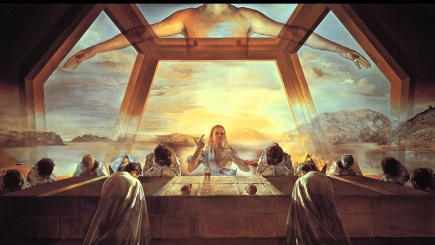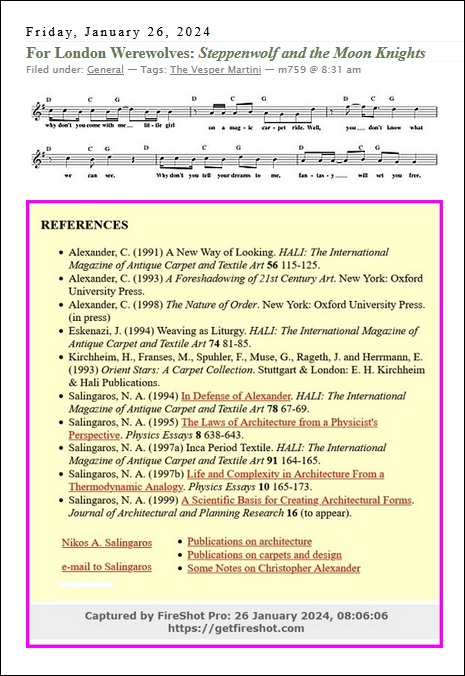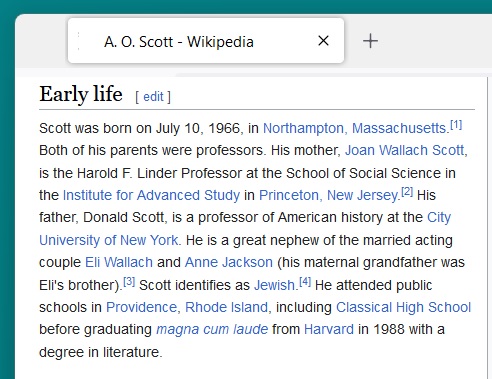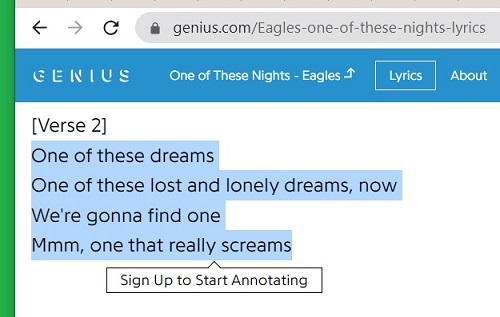Meanwhile, in this journal on the above Ice Stone date —
Thursday, December 31, 2020
The Dreaming Jewels . . .
Thursday, January 16, 2020
The Dreaming Jewels of J. R. R. Tolkien
See also Silmarils and, in this journal, The Dreaming Jewels .
Thursday, January 17, 2019
The Dreaming Jewels’ Nightmares
Some Log24 posts related to Theodore Sturgeon's 1950 tale
of The Dreaming Jewels have been tagged with that title.
For a purely mathematical approach to Sturgeon's concept see . . .
For some related nightmares, see July 2014 in this journal.
Friday, March 29, 2013
The Dreaming Jewels (continued)
In Memoriam
"In the late ’60s, Williams became a friend and confidant
of science fiction writer Philip K. Dick and wrote about
the iconoclastic author in Rolling Stone in 1974.
Williams eventually completed a biography on Dick
and became his literary executor after the writer’s death
in 1982. He also edited The Complete Stories of
Theodore Sturgeon, Vol. I-XII ."
— Yesterday in the Hollywood Reporter —
Pioneering Rock Journalist Paul S. Williams Dies at 64
4:06 PM PDT 3/28/2013 by Mitch Myers
See also Crawdaddy Story and The Dreaming Jewels
in this journal.
Related reading: Yesterday's noon post and Puzzles.
Update of 8:20 AM Good Friday, 2013:
Friday, August 2, 2024
For Harlan Kane: The Stevens Title
Things of August*
Related narratives:
Related mathematics:
*

Wednesday, May 29, 2024
The Strong Law of Small Shapes*
Two examples:
The above note led to a letter from John H. Conway, which in turn
led to the following . . .
* The title refers to a well-known 1988 article by Richard K. Guy.
A shape from the date of Guy's reported death —
Saturday, February 24, 2024
The adverb Li ly
An AI image created today by https://neural.love —
"Lily Collins Playing Chess" —

Perhaps some Dreaming Jewels have mated.
|
From The Dreaming Jewels , by Theodore Sturgeon: "Oh. And the crystals make things — even complete things — like Tin Pan Alley makes songs." "Something like it." Zena smiled. It was the first smile in a long while. "Sit down, honey; I'll bring the toast. Now — this is my guess — when two crystals mate, something different happens. They make a whole thing. But they don't make it from just anything the way the single crystals do. First they seem to die together. For weeks they lie like that. After that they begin a together-dream. They find something near them that's alive, and they make it over. They replace it, cell by cell. You can't see the change going on in the thing they're replacing. It might be a dog; the dog will keep on eating and running around; it will howl at the moon and chase cats. But one day — I don't know how long it takes — it will be completely replaced, every bit of it." "Then what?" "Then it can change itself — if it ever thinks of changing itself. It can be almost anything if it wants to be." Bunny stopped chewing, thought, swallowed, and asked, "Change how?" "Oh, it could get bigger or smaller. Grow more limbs. Go into a funny shape — thin and flat, or round like a ball. If it's hurt it can grow new limbs. And it could do things with thought that we can't even imagine. Bunny, did you ever read about werewolves?" "Those nasty things that change from wolves to men and back again?" Zena sipped coffee. "Mmm. Well, those are mostly legends, but they could have started when someone saw a change like that." |
Wittenborn and The Life of Forms in Art
For Focillon's "immobility" that "sparkles with metamorphoses,"
see Theodore Sturgeon's imagined "Dreaming Jewels ."
Wednesday, February 21, 2024
For Nevermore Academy… Wolfing Out
The previous post, and Wednesday's roommate, suggested the above title.
|
From The Dreaming Jewels , by Theodore Sturgeon: "Oh. And the crystals make things — even complete things — like Tin Pan Alley makes songs." "Something like it." Zena smiled. It was the first smile in a long while. "Sit down, honey; I'll bring the toast. Now — this is my guess — when two crystals mate, something different happens. They make a whole thing. But they don't make it from just anything the way the single crystals do. First they seem to die together. For weeks they lie like that. After that they begin a together-dream. They find something near them that's alive, and they make it over. They replace it, cell by cell. You can't see the change going on in the thing they're replacing. It might be a dog; the dog will keep on eating and running around; it will howl at the moon and chase cats. But one day — I don't know how long it takes — it will be completely replaced, every bit of it." "Then what?" "Then it can change itself — if it ever thinks of changing itself. It can be almost anything if it wants to be." Bunny stopped chewing, thought, swallowed, and asked, "Change how?" "Oh, it could get bigger or smaller. Grow more limbs. Go into a funny shape — thin and flat, or round like a ball. If it's hurt it can grow new limbs. And it could do things with thought that we can't even imagine. Bunny, did you ever read about werewolves?" "Those nasty things that change from wolves to men and back again?" Zena sipped coffee. "Mmm. Well, those are mostly legends, but they could have started when someone saw a change like that." |
Thursday, February 15, 2024
The Isotropic Die

Related material: Theodore Sturgeon's novel The Dreaming Jewels
and his story "What Dead Men Tell" . . .

Saturday, October 21, 2023
“Proof of Concept” at The New York Times
About the author of the above —
A related questionable "proof of concept" :
Aitchison at Hiroshima in this journal — a scholar's 2018 investigation
of M24 actions on a cuboctahedon — and . . .
Sunday, September 10, 2023
For Orson Welles and Yul Brynner
Two examples from the Wikipedia article "Archimedean solid" —
Iain Aitchison said in a 2018 talk at Hiroshima that
the Mathieu group M24 can be represented as permuting
naturally the 24 edges of the cuboctahedron.
The 24 vertices of the truncated octahedron are labeled
naturally by the 24 elements of S4 in a permutahedron —

Can M24 be represented as permuting naturally
the 24 vertices of the truncated octahedron?
Related material from the day Orson Welles and Yul Brynner died —
Sunday, June 25, 2023
High Concept: The Dreaming Gemstones
Wednesday, March 29, 2023
An Earlier “Pretty Mama” Song, from a 1975 Album
The previous post referenced the "pretty mama" of "Cocktail" (1988).
Earlier, in 1975, there was a more serious song to a pretty mama . . .
One of these nights
One of these crazy old nights
We're gonna find out, pretty mama
What turns on your lights
See as well "Dreaming Jewels" and . . .
Thursday, March 9, 2023
Naming Names
The name "Kilgore Trout" in the previous post suggests a passage in
Wikipedia on authors — two real, one imaginary —
"The 'Kilgore Trout' name was a transparent reference to
the older writer (substituting 'Kilgore' for 'Theodore' and
'Trout' for 'Sturgeon'), but since the characterization was
less than flattering (both Sturgeon and Trout were financially
unsuccessful and seemingly slipping into obscurity),
Vonnegut did not publicly state the connection, nor did
Sturgeon encourage the comparison."
See also, in this journal, Theodore Sturgeon's "The Dreaming Jewels."
Monday, October 10, 2022
Hidden Structure
The following note from Oct. 10, 1985, was not included
in my finitegeometry.org/sc pages.
See some related group actions on the cuboctahedron at right above.
Friday, January 18, 2019
The Woke Grids …
… as opposed to The Dreaming Jewels .
A July 2014 Amsterdam master's thesis on the Golay code
and Mathieu group —
"The properties of G24 and M24 are visualized by
four geometric objects: the icosahedron, dodecahedron,
dodecadodecahedron, and the cubicuboctahedron."
Some "geometric objects" — rectangular, square, and cubic arrays —
are even more fundamental than the above polyhedra.
A related image from a post of Dec. 1, 2018 —
Wednesday, January 16, 2019
The Dreaming Polyhedron
"Here is a recipe for preparing a copy of the Mathieu group M24.
The main ingredient is a genus-3 regular polyhedron X
with 56 triangular faces, 84 edges, and 24 vertices.
The most delicate part of this recipe is to hold the polyhedron
by the 24 vertices and immerse the rest of it in 3-dimensional space."
— "How to Make the Mathieu Group M24 ," undated webpage
by David A. Richter, Western Michigan University
Illustration from that page —

"Another model of the (universal cover of the) polyhedron X"
Related fiction —
Cover of a 1971 British paperback edition of The Dreaming Jewels,
a story by Theodore Sturgeon (first version published in 1950):

Discuss Richter's model and the Sturgeon tale
in the context of posts tagged Aitchison.
Monday, December 7, 2015
Neon Joe, Werewolf Hunter
For the title, see The New York Times and the oeuvre of Joseph Kosuth.
|
From The Dreaming Jewels , by Theodore Sturgeon: "Oh. And the crystals make things — even complete things — like Tin Pan Alley makes songs." "Something like it." Zena smiled. It was the first smile in a long while. "Sit down, honey; I'll bring the toast. Now — this is my guess — when two crystals mate, something different happens. They make a whole thing. But they don't make it from just anything the way the single crystals do. First they seem to die together. For weeks they lie like that. After that they begin a together-dream. They find something near them that's alive, and they make it over. They replace it, cell by cell. You can't see the change going on in the thing they're replacing. It might be a dog; the dog will keep on eating and running around; it will howl at the moon and chase cats. But one day — I don't know how long it takes — it will be completely replaced, every bit of it." "Then what?" "Then it can change itself — if it ever thinks of changing itself. It can be almost anything if it wants to be." Bunny stopped chewing, thought, swallowed, and asked, "Change how?" "Oh, it could get bigger or smaller. Grow more limbs. Go into a funny shape — thin and flat, or round like a ball. If it's hurt it can grow new limbs. And it could do things with thought that we can't even imagine. Bunny, did you ever read about werewolves?" "Those nasty things that change from wolves to men and back again?" Zena sipped coffee. "Mmm. Well, those are mostly legends, but they could have started when someone saw a change like that." |
See as well The Dreaming Jewels
and "Steven Universe" in this journal.
You can't make this stuff up.
Wittgenstein Illustrated
From "AMNESIA: VARIOUS, LUMINOUS, FIXED,"
An exhibition by Joseph Kosuth at
Sprüth Magers Gallery London,
NOVEMBER 26 2014 – FEBRUARY 14 2015 —
This journal, NOVEMBER 26 2014 –
|
Wednesday, November 26, 2014
Mathematics and Narrative
|
This journal, FEBRUARY 14 2015 —
Tuesday, April 14, 2015
Sacramental Geometry:
The Dreaming Jewels continued

"… the icosahedron and dodecahedron have the same properties
of symmetry. For the centres of the twenty faces of an icosahedron
may be joined to form a regular dodecahedron, and conversely, the
twelve vertices of an icosahedron can be placed at the centres
of the faces of a suitable dodecahedron. Thus the icosahedral and
dodecahedral groups are identical , and either solid may be used to
examine the nature of the group elements."
— Walter Ledermann, Introduction to the Theory
of Finite Groups (Oliver and Boyd, 1949, p. 93)

Salvador Dali, The Sacrament of the Last Supper

Omar Sharif and Gregory Peck in Behold a Pale Horse
Above: soccer-ball geometry.
See also …

See as well
"In Sunlight and in Shadow."
Wednesday, November 26, 2014
Mathematics and Narrative
Mathematics: Galois-Plane Models.
Narrative: "The Dreaming Jewels."
Tuesday, December 31, 2013
Christmas Ornaments
Continued from December 25—

A link from Sunday afternoon to Nov. 26, 2012,
suggests a review of one of the above structures.

The Dreaming Jewels cover at left is taken from a review
by Jo Walton at Tor.com—
"This is a book that it’s clearly been difficult
for publishers to market. The covers have been
generally pretty awful, and also very different.
I own a 1975 Corgi SF Collectors Library
paperback that I bought new for 40p in the later
seventies. It’s purple, and it has a slightly grainy
cover, and it matches my editions of The Menace
From Earth and A Canticle for Leibowitz .
(Dear old Corgi SF Collectors Editions with their
very seventies fonts! How I imprinted on them at
an early age!) I mention this, however, because
the (uncredited) illustration actually represents and
illustrates the book much better than any of the other
cover pictures I’ve seen. It shows a hexagon with an
attempt at facets, a man, a woman, hands, a snake,
and stars, all in shades of green. It isn’t attractive,
but it wouldn’t put off people who’d enjoy what’s inside
either."
The "hexagon with an attempt at facets" is actually
an icosahedron, as the above diagram shows.
(The geometric part of the diagram is from a Euclid webpage.)
For Plato's dream about these jewels, see his Timaeus.
Saturday, March 30, 2013
Blackboard Jungle
Harrowing of Hell (Catholic Encyclopedia )
"This is the Old English and Middle English term
for the triumphant descent of Christ into hell (or Hades)
between the time of His Crucifixion and His Resurrection,
when, according to Christian belief, He brought salvation
to the souls held captive there since the beginning of the world."
Through the Blackboard (Feb. 25, 2010)—
See also The Dreaming Jewels and Colorful Tale.
Monday, November 26, 2012
“The Eight”…
… Meets "The Master"—

Today's midday NY Lottery: 333 and 5885.
"Continue a search for thirty-three and three." — The Eight (1988)
"Make me young." — Kilgore Trout in
Breakfast of Champions . Trout was modeled after
author Theodore Sturgeon… who died on 5/8/85.
(An example of Sturgeon's work: The Dreaming Jewels (1950).)
Related illustrations from the eighth day of 2012—
See also "I'm sorry to be catechizing you like this."























.jpg)
